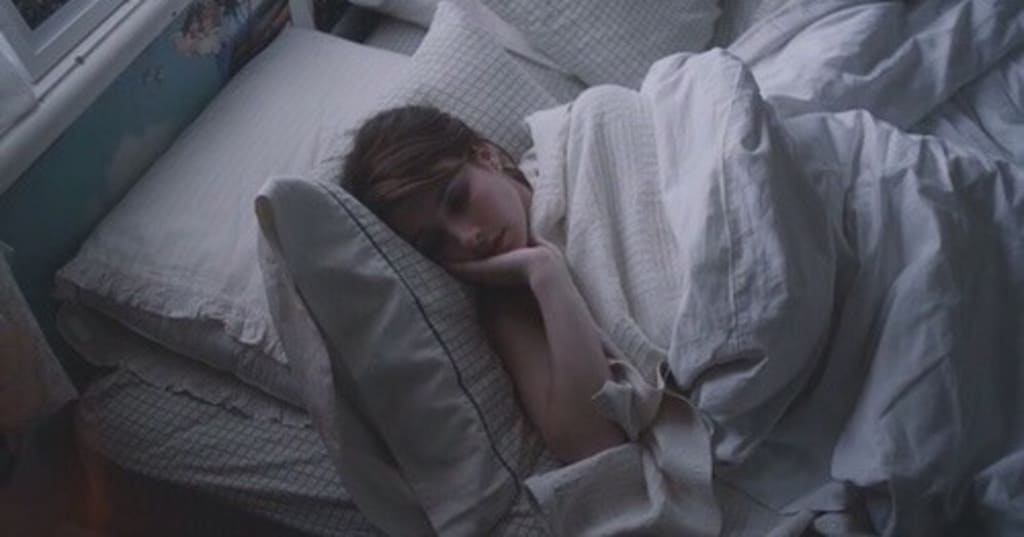
50 MG
I spent the second week of my sophomore year of high school in a psychiatric hospital. What brought me there wasn't the point. Nothing outside of the barred windows mattered the second I was rolled through those doors with my limbs secured and my body exposed to what felt like the entire world.
There's something quite beautiful about living that way, or at least it felt that way when I was drugged up and long faced.
The list of rules and safety precautions was out the door. Through the end of my medical exams and being fully admitted, I had nothing but a paper bag full of non-toxic toiletries, one pair of underwear, thin green socks, and a hospital gown that showed more than just my back.
There's no artsy, poetic way to say that it fucking blew. I was allowed up to one phone call a day and visiting hours were only 30 minutes long, although I didn't have anyone to talk to anyway. I was completely alone, beside the semi-support of my parents, and you'd think that being in a place that didn't allow glass, paperclips, or underwire bras would make that feeling amplify, but it wasn't until I left that I was capable of feeling just how overcome I was with the shittiness of major depression disorder.
Within hours, I was already being given my first dosage of 50mg Sertraline (Zoloft). Since no one bothered to explain the effects of medicating, I found the next months almost unbearable.
Two days after my return home, I was back in the large stall in the third-floor bathroom of my school. Panic attacks were nothing new (I had reoccurring ones throughout my childhood and they got worse the older I got). But this one stopped my world and made the fallout move in slow-motion.
Going from a place of comfort and around the clock care to being in the outer web (like we called it in group therapy) was beyond terrifying. I was drowning in my insanity quite literally.
Four weeks after being discharged, I took two bottles of NyQuil and drowned myself in the bathtub. The result was having to explain why the water had flooded the entire hall. I was suffocating in the day to day life and I had no idea why.
I am writing this almost a year later and am here to say this: the aftermath of a suicide attempt is guaranteed to be worse than what drove you to it in the first place. Learning to live with yourself and even just live. I had no way of seeing value in anything. And it was more than just the lack of chemical production in my brain. I saw and felt nothing for months at a time. That is, after my medication kicked in. There was no way to deal with my thoughts, ideas, and personality being completely manipulated by this tiny blue pill that increased in dosage each time I met with my psychiatrist. The reminder is always there and it never leaves. For me, physically. I had raised scars that seemed to catch the attention of everyone all the time. Even the dumb green hospital socks I cried about for hours when I couldn't find the matching pair. When I started losing sleep, which caused a list of problems in of itself, my doctor prescribed me a high dosage of an orange pill. I don't remember much from these four weeks. I remember my days lasting only 12 hours and how much my head hurt when I finally woke up. I remember being nothing but bones in a body and a handful of drugs.
All of this is enough to throw any victim back under the bus. It was for me, anyway. I had a total of six relapses and never, not once, was I able to identify any triggers. That frustrated me even more, and I wasn't afraid of showing it. I kicked everyone out of my life and lived a completely isolated life. I even refused to see my cats at all, which were, at one point, the only things keeping me alive.
Nobody talks about the aftermath. The fallout. The recovery. What happens when you don't wanna die, but you don't wanna live? And how do you live—actually live—with yourself?
I have no way of comforting a victim of a suicide attempt, because what can one do that will be remotely comforting to something that detrimental? Just know this: Your reward for recovery is your life.






Comments
There are no comments for this story
Be the first to respond and start the conversation.